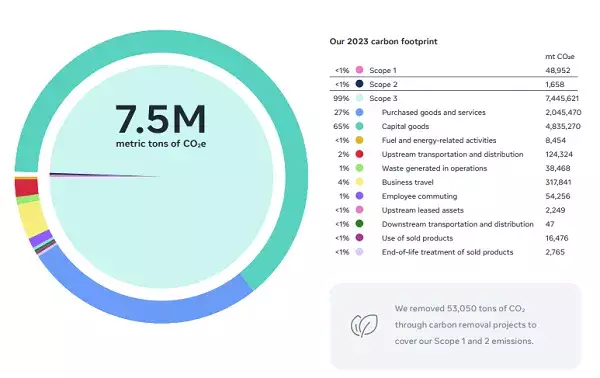In its latest iteration of the “Responsible Business Practices Report,” Meta Ventures explores a spectrum of topics, from the intricacies of artificial intelligence (AI) development to its aspirations for creating an immersive metaverse. This 144-page document serves as a comprehensive account of the company’s ethical stances and operational strategies, aiming to reflect Meta’s commitment to responsible growth in various sectors. However, amidst its positive proclamations lies an intricate web of challenges and ethical considerations that demand scrutiny.
The report places a significant emphasis on AI technology, underscoring Meta’s ambition to democratize access to AI tools across global demographics. The company asserts that it is actively embedding cutting-edge generative AI models into its suite of products and services. While this open-access model aims to bridge the technological divide between different regions, it raises questions about the implications of such rapid advancements. The notion that certain regions may outpace others in accessing sophisticated AI capabilities can exacerbate inequality and foster socio-economic divides.
Furthermore, the report mentions Meta’s focus on connecting people through enhanced AI experiences. While the intention to forge deeper connections is laudable, the potential intrinsic threats associated with AI, such as misuse or exploitation, are significant. The role of AI in controlling narratives and enhancing surveillance capabilities also merits critical examination, particularly as society becomes increasingly reliant on these technologies for communication and interaction.
Meta’s vision of the metaverse is encapsulated in ambitious statements about evolving social interaction beyond 2D interfaces. The report insists that augmented and virtual reality technologies are pivotal in this journey. Yet, while this vision is expansive, it also raises concerns about economic exclusion. The technologies required to fully participate in the metaverse can be prohibitively expensive, potentially creating a barrier for underprivileged populations.
The aspiration of fostering connectivity in the metaverse should not overshadow the reality that unequal access to the necessary hardware and internet infrastructure could lead to new forms of digital isolation. Therefore, it is crucial to address these disparities in conjunction with the promotion of new digital frontiers.
An essential component of Meta’s report is its mention of privacy initiatives. Since 2019, the company claims to have invested over $5.5 billion in stringent privacy protocols, aimed at embedding privacy into its technological offerings from inception. While this investment is a positive step towards mitigating data risks, the effectiveness and transparency of these measures remain areas of concern. The tech world has been embroiled in debates over data exploitation, and skepticism persists regarding whether companies like Meta can genuinely protect user data without compromising the user experience.
In addition to privacy, Meta also touches on its environmental impact. As corporate sustainability increasingly comes under the spotlight, the company’s environmental commitments are vital. However, like other technology giants, Meta faces scrutiny about the carbon footprint associated with data centers and the mining of materials for devices. The report could benefit from a more transparent discussion of these challenges to ensure authenticity in its claims of social responsibility.
The report delves into Meta’s various social initiatives and its political engagements. Notably, this includes the funding of candidates who align with its business interests through their political action committee (PAC). Though CEO Mark Zuckerberg refrains from endorsing candidates publicly, the ethical implications of corporate involvement in politics carry significant weight. Such engagements risk accusations of favoritism and manipulation, particularly regarding the spread of policies that may not align with the public’s best interests. Transparent discourse about the extent and nature of Meta’s political engagements is crucial to building trust with its user base.
While Meta’s “Responsible Business Practices Report” outlines ambitious goals and noteworthy achievements, it simultaneously glosses over several pressing ethical issues. As the tech giant embarks on its quest for innovation, a more balanced analysis that acknowledges potential harms alongside its positive initiatives would foster greater accountability. The dual nature of technology, particularly in how it can either bridge or widen societal divides, underscores the need for a conscientious approach as Meta continues its evolution into new digital realms. To ensure an inclusive and responsible future, continuous examination and open dialogue about these complexities are essential.


Leave a Reply